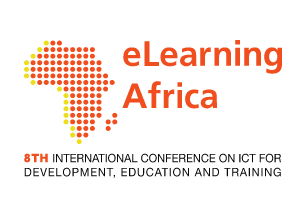Software-Database and National Security
 Software is undoubtedly the backbone to 21st century national security. The crux of this paper is based on the conceptual principle that with regards to information systems and security, “we cannot manage what we cannot measure”.
Software is undoubtedly the backbone to 21st century national security. The crux of this paper is based on the conceptual principle that with regards to information systems and security, “we cannot manage what we cannot measure”.
Today, the quantum challenges, needs and response aspirations for our national security cannot be effectively determined, scaled, managed and/or measured without a dynamic National Security Intelligent Database System. It is however pertinent to state that National security is to a larger degree, a shared obligation and responsibility of the State and the citizenry.
According to Philip Zelikow Executive Director of 9/11 Commission and now a Professor at the University of Virginia, USA, the most significant lessons learned from the 9/11 catastrophe is: “The United States of America would have done, before the 9/11 saga, most of the things (i.e.: reactionary measures taken) that we did post 9/11!” A valid example is the establishment of the Homeland Security Institutional framework with its complex, colossal, multi-dimensional and highly-critical information infrastructure and expansive Database systems on Cybersecurity and Terrorism. It is all foe public safety.
Nigeria is currently faced with a similar challenge – informed by the magnitude and complexities of the United Nations suicide bomb blast and other deadly hits, such as the INEC bomb blast at Suleja, Niger State and the Abuja Police HQ, bomb blast to mention but a few. Would we have done some of the things we now intend to do – about 10 years ago? Would we have created a National Security Intelligence Database, adequately prepared with disaster recovery plans and mastered the related operational complexities before they stuck?
21st century Information clusters are dynamic knowledge architecture for developing Intelligent and security systems. Many centuries ago, great philosophers of knowledge like Aristotle, Francis Beckon, etc., have informed us that the character of a nation is dictated by the structure, knowledge modules, organizational ability and programmed processes of her information and Database systems. In other words, “As we lay your national information systems bed, so we lay/sleep on it!
The role of Technology and in particular, software systems in National Security Database Intelligence dynamics has therefore become a critical and significant component as well as a fundamental necessity for understanding e-security life-cycle. Also, it amplifies the needs and accelerated urgency for deploying strategies capable of protecting Critical National Information Infrastructure (CNII) with result-oriented and sustainable implementation process.
To actualize this important national objective, one global best principle is mandatory, that is: National Security Database Applications Software must be developed through and by harnessing internal resources and know-how and NOT by external forces. Swim or sink, Software-Nigeria is the key and the secure Roadmap to our future and Indigenous skill-sets must be called to national duty. The reason is not far-fetched, the task is a very sensitive initiative which represents and is indeed, the knowledge laboratory for national survivability. India is a good example of this process.
For so long, our Information and Data attributes seems to have been sentenced by ignorance to the death-roll of our nation building agenda and development mission. This artificially conceived anti-database mindset (the Nigerian factor?) has indeed subverted and corrupted the conscious layers of our intellectual and merit-mechanisms. Furthermore, it has aided and abetted the migration of our patriotic ability, from a community of “what-you-know” to a society of “who-you know” and where you come from!
Above all, it has created a society that is entangled in techno-phobia and estranged by technology. A society that abhors critical information process; shuns, hunts and crucifies rigorous database generation and myopically subdues professional IT knowledge acquisition project implementation processes as insignificant or unnecessary for national intelligence and people development.
The consequence is that what we now have is a capital merchandising environment – otherwise known as ‘Okada economy’! This has led us to pursue and glorify 4-megawatts of power generation, when indeed we require a minimum of 50-megawatts to jump-start a globally meaningful and competitive vision as the single largest concentration of people of African descent under the universe. It is all about Software. It is about Database!
The reality today translates to the fact that it should be abundantly clear to us, that the era and long-addicted habit of physically and blindly chasing the containers and cargo packages at all our import terminals and air/land boarders and throwing away the content of the manifest documents that represent the knowledge-base and real world inside the containers, must be over by now. The fact that ‘Kid Google’ utilizes 2.3million Megawatts to run its global knowledge business compared to Nigeria’s dream for generating 10,000 Megawatts by 2015, or a reality that Microsoft has earned more money in 25years of its operation – than what General Motors has netted in 100years, should be a wakeup call to Nigeria!
Today, Information Technology (IT) is undoubtedly the world’s fastest growing body of knowledge for sustainable development and national survivability. At the centre of these very complex processes is Software Infrastructure, capacity and capability which determines the equilibrium for national security, peace, growth, creation of wealth and for business continuity of nations at all levels.
Overcoming the barriers to mapping scientific data into the relational database models or developing useful new abstractions for scientific data and processing models are seen as necessities to allow nations scale through their critical challenges of nation building. Industrial systems typically require high availability, even during loading and backup. These systems are often integrated into essential business processes.
The last few decades have witnessed an exponential and multifaceted growth of technology at all critical levels of development. This growth has not only affected many fields of economic and cultural endeavor but various new/applied fields have emerged leading to significant changes into lifestyles and human behavior.
From security perspective impact of technologies has become an important premise of study. Global lessons now challenge us to take a macro view of impact of technology on security in evaluating, engaging and finding solutions to the Nigerian problem. This macro analysis of some recent conflicts such as the Gulf War (1993), Kosovo conflict, the 9/11 episode, the US invasion of Iraq and Afghanistan and indeed, the Stuxnet weaponized cyber-worm-bomb have clearly demonstrated the relevance of technology for engaging Cyber security and fighting Terrorism.
The market forces essentially dictate the growth of technology and subsequently military technologists take a note of it and then modify it for militaristic purposes. Another reason for this could be the realization by the global powers in regard to blind investments into military weaponry/ technology. States have learnt from the erstwhile USSR example and are not ready to invest in military hardware just for ‘effect’.
Various modern day tools of war fighting are driven by technology and that makes technology an important theme in the study of international security. The impacts of science and technology on international security environment are all-encompassing. Technology is instrumental in influencing the ‘concept of war-waging’ in the minds of both the political and military leadership for many centuries but it appears that in the present scenario, it has almost become over-arching. Presently many emerging technologies are being talked about which have major relevance for militaries. Modern day wars are not always envisaged to be fought only on the battleground.
21st century defense preparedness involves demonstration of technological strength, know-how and display of technologies via various industry and military exercises, conducting ‘tests’ of new technologies, weapons, weapon delivery platforms for the purposes of the expression of the know-how and power and also, building up of an effective deterrence mechanism. In short, there is and exists a distinct multi-dimensional inter-relation between security and technology.
Technology has always played a significant role in national security and defence. But, there is a subtle difference in the development of technology vis-à-vis State Security Domain. Both the developed and few developing nations, have understood the relevance of technology from national security perspective and are making investments in various fields of technologies that have both short and long term security relevance. Such technologies are commonly known as Strategic Technologies. The current focus is on space and near-space technologies, networks, and close-in and standoff sensor technologies.
As an inclusive solutions pathway, our Satellites maybe found extremely important for the purposes of intelligence gathering. Particularly the remote sensing satellite, which will be a significant tool for the purposes of reconnaissance and imagery intelligence. Specific satellites are found playing a significant role towards gaining intelligence. Satellites are useful for the purposes of electronic intelligence (ELINT), signals intelligence (SIGINT), communication intelligence (COMINT), and radar intelligence (RADINT).
Finally, Security clearly and directly related to financial transactions and movement database. Over the years, all those acts of financial recklessness and cyber-carelessness have consequently subsumed our human abilities to meditate, predict and see into the future. The resultant effect is that we have built a monumental unsecured technology environment of cyberweb patched by layers of uninformed, crisis-propelled and greedy human minds. This scenario has established and left us in heavily morally indebted, decadent and techno-beclouded society, where gross fixation of oral data has enveloped our development mind-set and thrown us into a centrifugal dance of irrelevant regional divide, contaminated and addictive religious adventure, orchestrated tribal hate, world record in conspicuous consumption greed and unforgiving smiling-face pretence model of wasteful life!
The national security issue under discussion is all encompassing; it is not just about technology or the ability of the NSA to deliver commensurate solutions, but indeed about our value system, the sociological, philosophical and psychological content and factors of our society – a sycophant of 40 decades?
Now that our moral centre-of-gravity can no longer hold, there is urgent need to develop an effective database strategy to filter the new revelations of the half-truths and full-lie sources and causes of our current situation. The NSA is very informed, high-technology converted and to a great extent, sincere on the compounded nature of the national crisis, open to new ideas and should be assisted to establish the required National Security Information Pyramids of Technology-driven database to evaluate the e-security pathways with capability to respond promptly at the nanosecond call.




